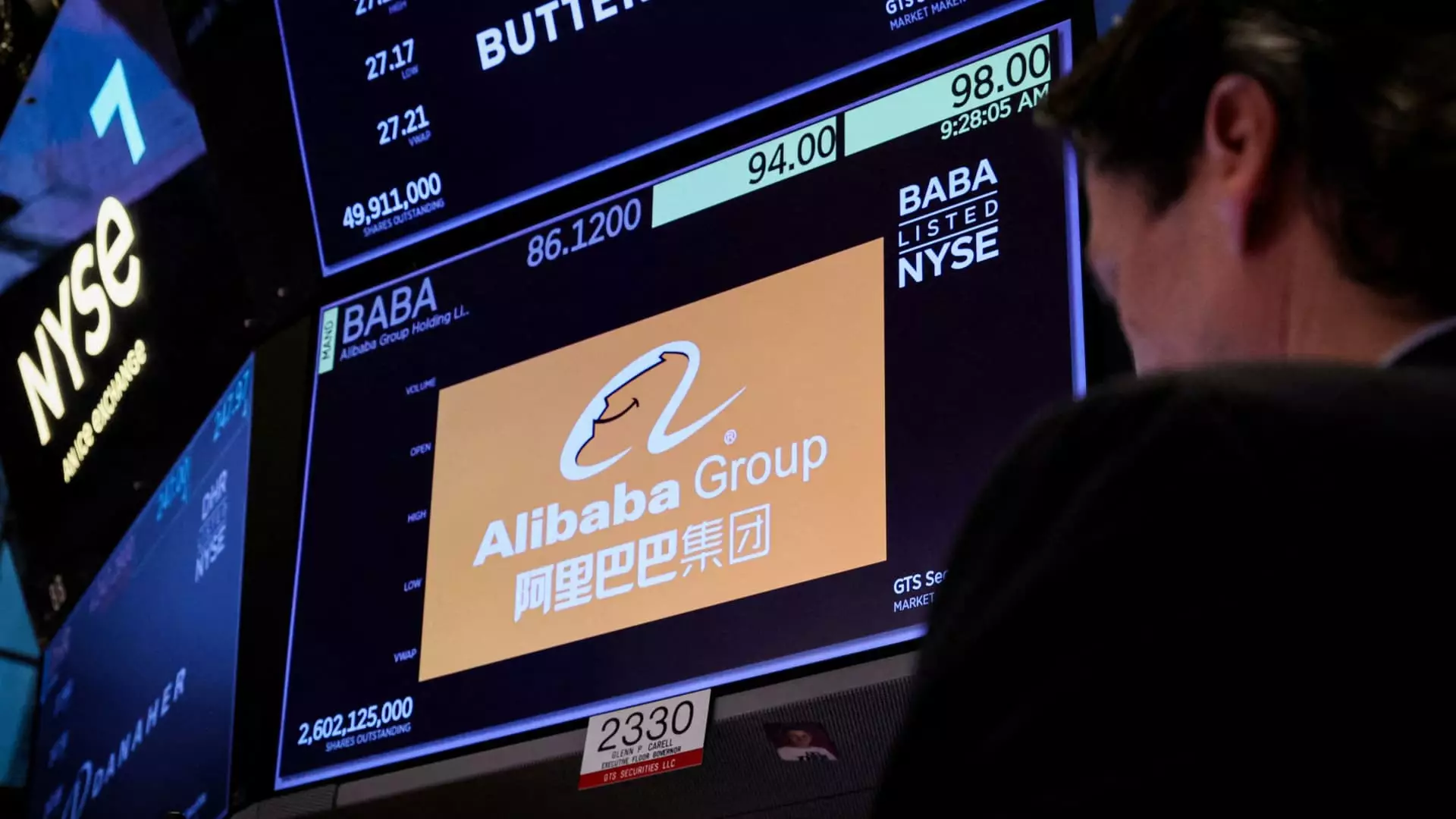In a recent management shuffle at Alibaba Group, CEO Eddie Wu is stepping into a new role as the head of the company’s Taobao and Tmall e-commerce business, taking over from Trudy Dai, one of Alibaba’s 18 co-founders. This move comes as part of a series of management changes that have occurred throughout the year. Wu, who became CEO of Alibaba in September, had already been serving as the chairman of Taobao and Tmall Group since May 2023.
Alibaba’s e-commerce business, which was once a driving force behind the company’s success, has started to face difficulties in recent times. The emergence of competitors like PDD has posed a threat to Alibaba’s dominance, while the slow growth of consumption in China has added to the challenges. PDD’s shares, listed in the U.S., have seen a significant gain of over 80% this year, surpassing Alibaba’s market capitalization. In contrast, Alibaba’s shares have dropped by approximately 14% year to date. This decline was further exacerbated by the news last month that Alibaba had abandoned its plans to list its cloud business due to U.S. restrictions on exports of advanced chips to China.
Eddie Wu’s New Responsibilities
Following his appointment as CEO of Alibaba, Eddie Wu will now be leading both Alibaba Cloud and Taobao and Tmall Group. This move is aimed at ensuring a strong focus on the company’s core businesses: cloud computing and e-commerce. Wu’s leadership will also prioritize significant and sustained investments in these two areas, as well as driving technology innovation to transform Taobao and Tmall Group. The internal letter from Alibaba Chairman Joe Tsai highlighted the intention to empower a new generation of management leaders, equipped with fundamental skill sets and experience gained from the ground up.
Trudy Dai, having accomplished her mission regarding Taobao and Tmall, will now be assisting in establishing an asset management company. This role will allow her to play to her strengths and contribute to the development of new opportunities within Alibaba. The specifics of the non-core assets that Alibaba plans to monetize, as mentioned in Tsai’s letter, were not disclosed.
Alibaba’s management reshuffling reflects the company’s response to the changing landscape of the e-commerce industry and the need for innovation. By consolidating leadership roles and focusing on core businesses, Alibaba aims to revitalize its position and ensure sustained growth. As the company moves forward, it will be interesting to see how Eddie Wu’s appointment as the head of Taobao and Tmall contributes to Alibaba’s overall strategy. Additionally, the asset management company being developed under Trudy Dai’s guidance presents a new avenue for Alibaba to explore and maximize its investments.
With ongoing challenges and the need to adapt to a dynamic market, Alibaba continues to make strategic changes to its management team. The spotlight now falls on Eddie Wu as he takes on the leadership of Taobao and Tmall, driving innovation and investment. Alongside him, Trudy Dai’s transition to a new role in asset management signals Alibaba’s commitment to exploring and capitalizing on new opportunities. These changes signify Alibaba’s determination to stay ahead in the competitive world of e-commerce and maintain its standing as a technology giant.


Leave a Reply